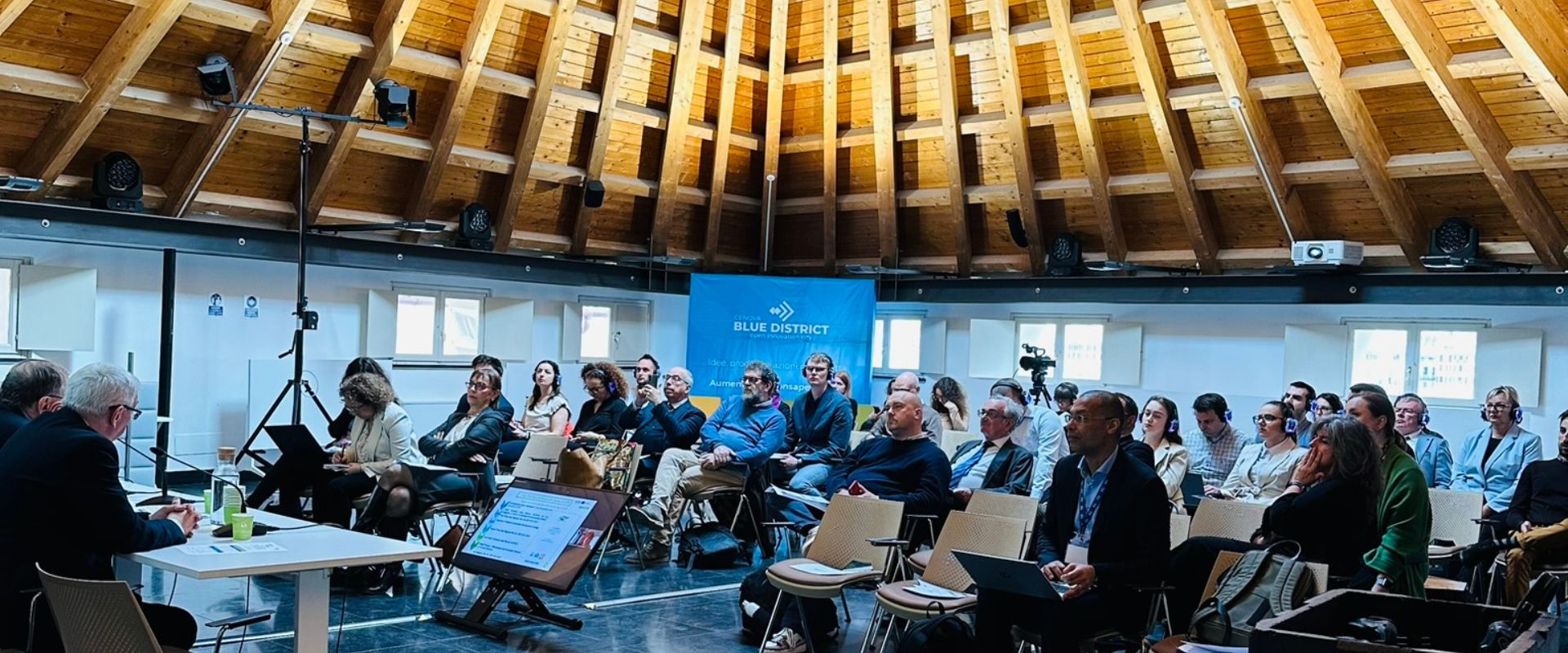The SMART CIRCUIT’s commitment to transforming Central Europe’s manufacturing ecosystem through smarter, circular digital innovation hubs was vibrantly showcased over two compelling days of conferences and workshops on April 10th and 11th, 2024. These events in Genoa underlined the project’s dedication to a greener and more competitive future. Here, we summarize the important moments and key lessons from these gatherings.
Day one: Conference on Circular Industry Futures
On April 10th, the conference kicked off with insights into the circular economy’s impact on the electronics and electrical recycling sectors. Esteemed speakers like Pier Giuseppe Naso Rappis from SIIT and Paola Carnevale, the Environment General Director of Regione Liguria, discussed strategic regional approaches to sustainability. The day was rich with discussions on the role of digital marketplaces in enabling circularity and the integration of advanced technologies like Big Data, Blockchain, and AI to foster circular economy growth.
Key discussions also revolved around the use of sensors in components to enhance monitoring and digitalization within the circular economy, spotlighted by experts from the LIGHTSE, a leading engineering firm. Best practices in the region were highlighted, including innovative projects like Clip Circuito and EcoeFISHent, showing practical implementations of circular principles in local industries.
Day two: Strategic Dissemination Lab and Project Partners Meeting
The second day began with the Strategic Dissemination Lab, focusing on the real-world application of circular economy strategies. and success stories, emphasizing the scalability of circular solutions across different regions. This session provided a crucial platform for exchanging ideas and fostering partnerships among stakeholders and policymakers.
Following the lab, the Project Partners Meeting delved into the updates and collaborative efforts required to further the project’s goals. In a significant update, partners shared the status and future plans for circular transformation across various operational pillars, like policy learning, strategic engagement, and technology-driven solutions to enhance circular economy production value chains. Workshops focused on practical implementation and harmonization of task forces to streamline technology transfer and mobility missions.
Key lessons and takeaways
The two days were a testament to the power of collaboration and innovation in driving sustainable change. Key lessons included:
- Importance of regional strategies: Effective circular transformation requires tailored approaches that consider local conditions and opportunities, as emphasized by multiple speakers across the events.
- Role of advanced technologies: Integrating technologies like AI, Blockchain, and IoT is crucial for scaling up circular economy practices effectively.
- Stakeholder engagement: Continuous engagement with policymakers, industry leaders, and academic institutions is vital for the adaptive and successful implementation of circular strategies.
- Practical implementations are key: Showcasing real-world examples of circular economy practices helps in understanding challenges and refining approaches for better outcomes.
As SMART CIRCUIT keeps moving forward toward a sustainable future, these meetings are not just checkpoints but also opportunities to come up with new and creative ideas and strategies that will influence how manufacturing happens in Central Europe. The journey is ongoing, and every step taken is a stride towards environmental sustainability and economic resilience.
